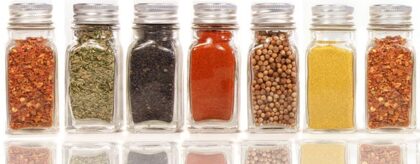Q: How can children’s dental problems be reduced at home?
A: Here at Affiliated Dentists in Madison, Wisconsin, we love seeing our patients’ smiling faces as they come into our dental center. However, we’re always happiest when our patients are cavity free and don’t need any extra appointments beyond their regular cleanings.
In honor of National Children’s Dental Health Month, we have some important steps you can take at home to reduce your child’s risk of tooth decay and other dental problems so that she can spend more time learning and playing and less time in the dentist’s office.
- Daily Dental Basics
- Boosting Your Food
- Staying on Track with Appointments
Daily Dental Basics
First things first: if your child doesn’t have a daily oral hygiene routine, now’s the time to start. Helping your child maintain a solid dental care routine is one of the most important things you can do to set her up for a successful next visit to the dentist.
First, your child should have a soft-bristled toothbrush and use a fluoride toothpaste if he’s three or older and can spit out toothpaste consistently. For three- to six-year-olds, apply a pea-sized amount of toothpaste to the brush.
Next, help your child brush his teeth for two minutes, being sure to brush all sides of each tooth. Young children will need help reaching all the surfaces of the teeth. Encourage your child to do some of the brushing himself, but then you’ll probably need to take over for a bit to brush any missed areas. Brushing should be done in the morning and at night before bed.
In addition to brushing twice a day, your child will also need to floss once a day. Flossing is essential for maintaining good oral health. If you skip flossing, you may be missing out on cleaning up to 40% of the teeth’s surface area! Flossing should begin as soon as your child has two teeth that are next to each other.
To make flossing less of a chore, you and your child can try using flossers. The plastic handles make manipulating the floss a little easier and your child may be able to do some of the flossing herself.
Flossing can be done at any time of the day. Look for less-rushed times of day to fit it in.
Boosting Your Food
Another way to help reduce your children’s potential dental problems is to take a look at their diet. Foods rich in vitamins and minerals, like meats, cheeses, nuts, dairy, and crunchy vegetables and leafy greens are dental superfoods. Aim to increase those kinds of foods in your children’s diet.
Foods that should be avoided or eaten sparingly include sugary or starchy items that can get caught between the teeth, including candy, potato chips, bread, crackers, and dried fruit.
As far as beverages go, alternating between milk and water is a great strategy. Milk is full of protein, vitamins, and minerals, and water is perfect for washing away sugars and food debris from meals and snacks.
Juice and soda contain sugar and acid that can wear down enamel and lead to decay. These should be avoided when possible.
Staying on Track with Appointments
You can also help reduce your child’s risk of dental issues by ensuring that he visits the dentist at least twice a year. These appointments are critical to optimum dental health because your child will receive a more thorough cleaning than he can get at home. He’ll be seen by the dentist to make sure no problems are developing. And he’ll also receive preventative measures such as fluoride treatments and sealants to prevent new decay from forming.
For further reading: Are Dental Sealants Safe for Kids?
Even if your child seems in good health, don’t skip these appointments! Missing appointments can lead to missing early signs of decay, which in turn can result in larger problems down the road.
Pediatric Dentistry in Madison, Wisconsin
If it’s time for your child’s six-month check-up, please schedule your appointment today. Affiliated Dentists offers general and pediatric dentistry in Madison, Wisconsin.
How Can Children’s Dental Problems be Reduced at Home? brought to you by Dr. Mark Gustavson


